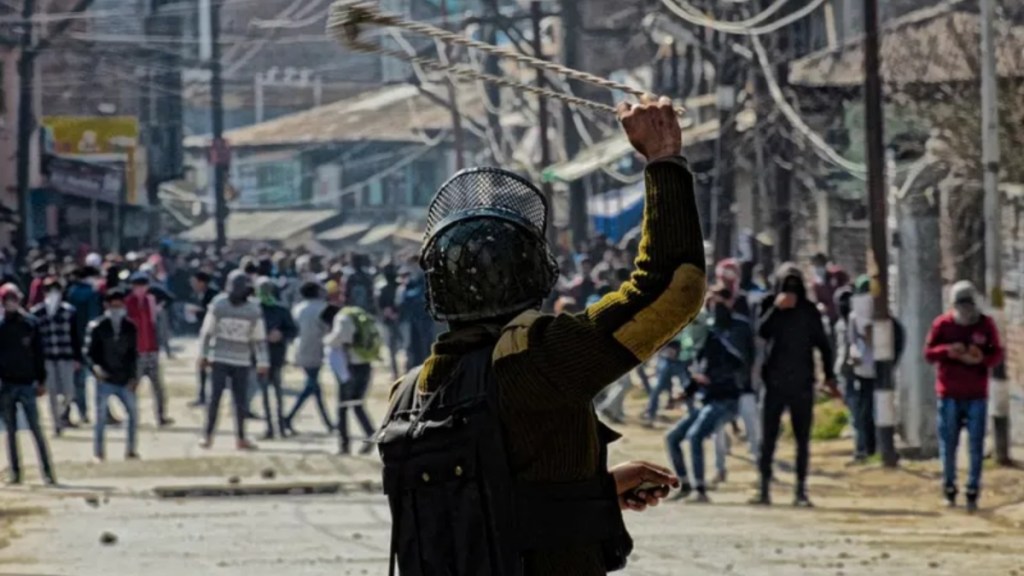In Jammu and Kashmir, the spectre of terrorism looms large, threatening to disrupt the democratic process. Intelligence agencies have intercepted alarming plans by terrorist outfits to spread chaos during the upcoming general elections in the region.
Specifically, Lashkar-e-Taiba (LeT), has set its sights on targeting BJP’s election rallies, prompting security agencies to elevate their vigilance.
As the elections draw near, the Jammu and Kashmir Police has intensified its efforts to ensure a smooth electoral process. Marches conducted alongside paramilitary forces underscore their commitment to upholding peace and fostering a conducive environment for free and fair elections. The recent flag march in Kulgam district exemplifies their proactive approach in safeguarding democracy amidst looming threats.
The electoral landscape in Jammu and Kashmir is fraught with challenges as the state, now a Union Territory, braces itself for voting across five Lok Sabha seats. Since the revocation of Article 370 and the subsequent year and a half, the region has witnessed a decline in terrorist incidents, offering a glimmer of hope for peace.
Home Minister Amit Shah’s discussions about potentially removing the Armed Forces Special Power Act (AFSPA) further signal a shift towards normalization. However, recent intelligence reports reveal a disturbing reality. Local Kashmiri terrorist Junaid Ahmed Bhatt, affiliated with Lashkar-e-Taiba, convened a clandestine meeting with unidentified associates in Kulgam district.
Although the identities of these associates remain elusive, it’s evident that their agenda revolves around targeting political rallies, particularly those organized by the BJP. The intelligence input also warns of potential attacks on informers aiding security forces, underscoring the pervasive threat posed by terrorism.
Despite sporadic incidents like the Kokernag encounter, where brave soldiers sacrificed their lives combating terrorists, the valley has largely experienced a semblance of peace. Yet, pockets of unrest in Rajouri and Poonch serve as stark reminders of the volatile environment. Defence Minister Rajnath Singh’s acknowledgment of the coordinated efforts between security forces and the army reflects the ongoing battle against terrorism, both within the region and along the Pakistan border.
In essence, the journey towards democracy in Jammu and Kashmir is fraught with challenges, yet it’s a testament to resilience and determination in the face of adversity. As the region navigates through turbulent waters, the collective resolve of security agencies, political stakeholders, and the resilient spirit of its people remain steadfast in upholding the democratic ethos.


